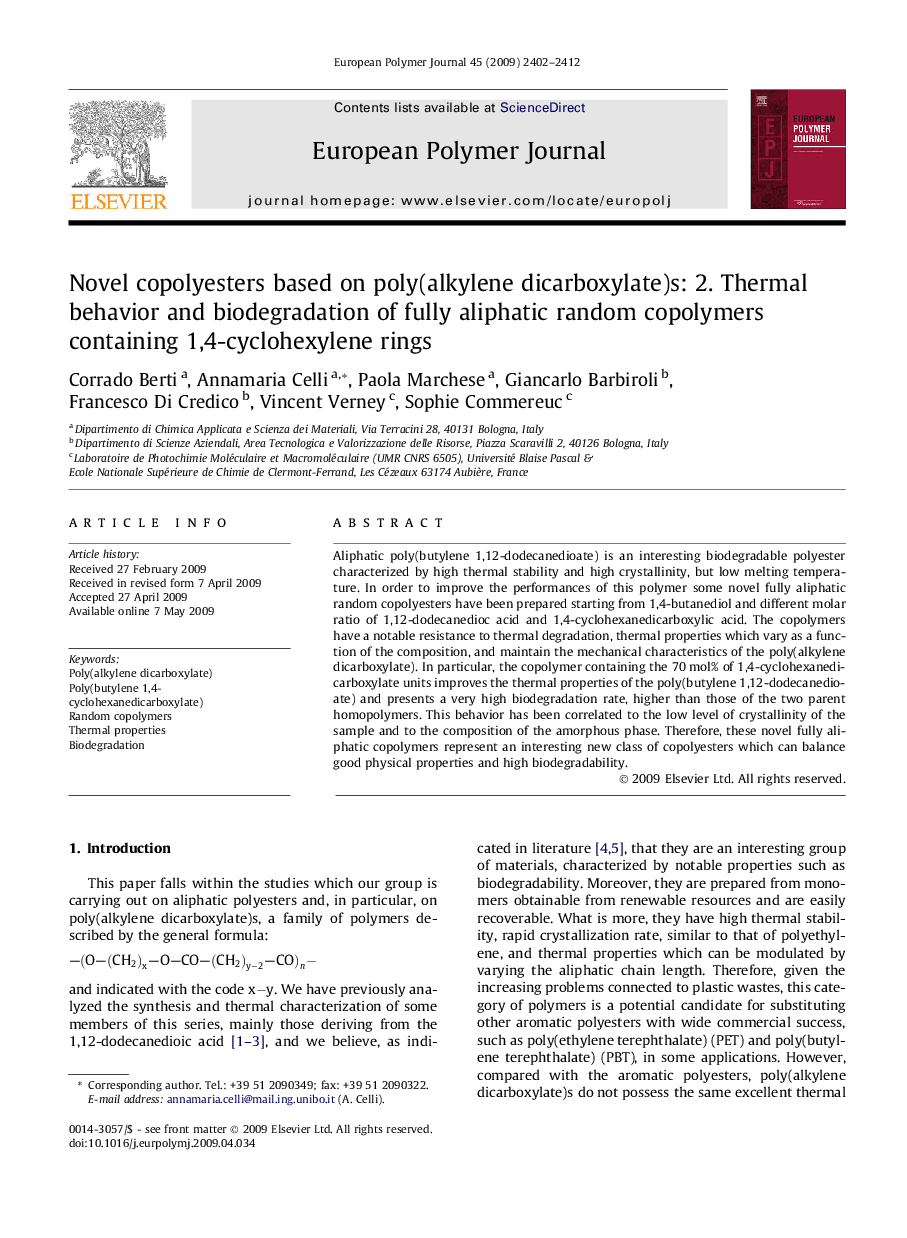| Article ID | Journal | Published Year | Pages | File Type |
|---|---|---|---|---|
| 1400798 | European Polymer Journal | 2009 | 11 Pages |
Aliphatic poly(butylene 1,12-dodecanedioate) is an interesting biodegradable polyester characterized by high thermal stability and high crystallinity, but low melting temperature. In order to improve the performances of this polymer some novel fully aliphatic random copolyesters have been prepared starting from 1,4-butanediol and different molar ratio of 1,12-dodecanedioc acid and 1,4-cyclohexanedicarboxylic acid. The copolymers have a notable resistance to thermal degradation, thermal properties which vary as a function of the composition, and maintain the mechanical characteristics of the poly(alkylene dicarboxylate). In particular, the copolymer containing the 70 mol% of 1,4-cyclohexanedicarboxylate units improves the thermal properties of the poly(butylene 1,12-dodecanedioate) and presents a very high biodegradation rate, higher than those of the two parent homopolymers. This behavior has been correlated to the low level of crystallinity of the sample and to the composition of the amorphous phase. Therefore, these novel fully aliphatic copolymers represent an interesting new class of copolyesters which can balance good physical properties and high biodegradability.
